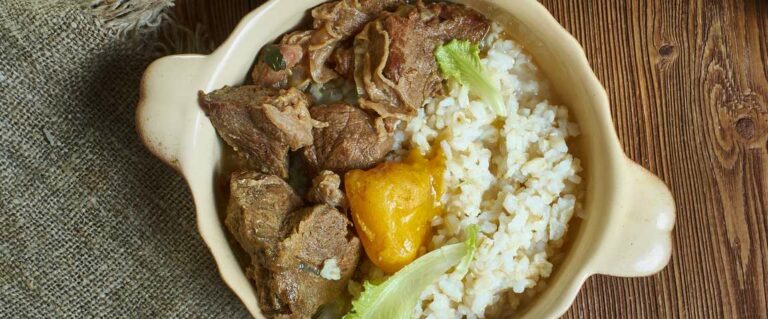Introduction: French Influence on Congolese Cuisine
French cuisine is renowned the world over for its exquisite dishes, refined techniques, and luxurious ingredients. Its influence extends beyond the borders of France, however, and has left its mark on the culinary traditions of many other countries. One such country is the Democratic Republic of Congo, where French cuisine has had a significant impact on the local dishes and cooking methods.
Historical Context: Colonialism and Culinary Exchange
The French influence on Congolese cuisine can be traced back to the period of colonialism, when Congo was under the control of Belgium and France. During this time, French culinary culture was introduced to the Congolese through European colonizers and missionaries. The Congolese people, in turn, incorporated French techniques and ingredients into their own cooking, resulting in a unique fusion of the two culinary traditions.
French Ingredients in Congolese Dishes
Some of the most notable French ingredients used in Congolese cuisine include butter, wine, and cheese. These ingredients were not traditionally used in Congolese cooking, but have been incorporated into many popular dishes, such as chicken in white wine sauce and potatoes au gratin. In addition, French herbs and spices such as thyme, rosemary, and tarragon are commonly used in Congolese cooking.
French Techniques in Congolese Cooking
The French have a reputation for their precise and refined cooking techniques, and many of these techniques have been adopted by Congolese chefs. For example, the French technique of braising, which involves searing meat and then slowly cooking it in liquid, is commonly used in Congolese stews. French pastry techniques have also influenced Congolese baking, with croissants, eclairs, and other French pastries being popular in Congo.
Congolese-French Fusion Dishes
One of the most exciting aspects of the French influence on Congolese cuisine is the creation of fusion dishes that combine both culinary traditions. One example of such a dish is “poulet à la moambe”, a Congolese chicken stew made with palm nut pulp and cooked in a tomato sauce with onions, garlic, and spices, which is often served with French-style baguettes.
Influence on Congolese Fine Dining
The French influence on Congolese cuisine has also had an impact on fine dining in the country. Many high-end restaurants in Congo serve French-inspired dishes alongside traditional Congolese cuisine. This fusion of culinary traditions has created a unique dining experience that is both sophisticated and rooted in local culture.
Critiques of the French Influence
While the French influence on Congolese cuisine has undoubtedly had a positive impact on the culinary landscape of Congo, it has also been subject to criticism. Some argue that the adoption of French cooking techniques and ingredients has led to a loss of traditional Congolese culinary culture. Others argue that the French influence perpetuates the legacy of colonialism and reinforces social and economic inequalities.
Conclusion: The Ever-evolving Congolese Cuisine
Despite these critiques, it is clear that the French influence on Congolese cuisine has had a lasting impact. The fusion of French and Congolese culinary traditions has created a rich and varied cuisine that continues to evolve today. Whether in the form of classic French dishes with a Congolese twist or modern fusion cuisine, the French influence on Congolese cuisine is a testament to the power of culinary exchange and cultural exchange.

